June 8 is World Oceans Day, and it’s an excellent time to celebrate the beauty and bounty of our oceans and commit ourselves to their protection.
Whether you’re surf-casting on a beach at twilight, dropping a line deep off a pier or bridge, or trolling the waters off the coast, saltwater fishing is one of those experiences that make living in Florida just feel right.
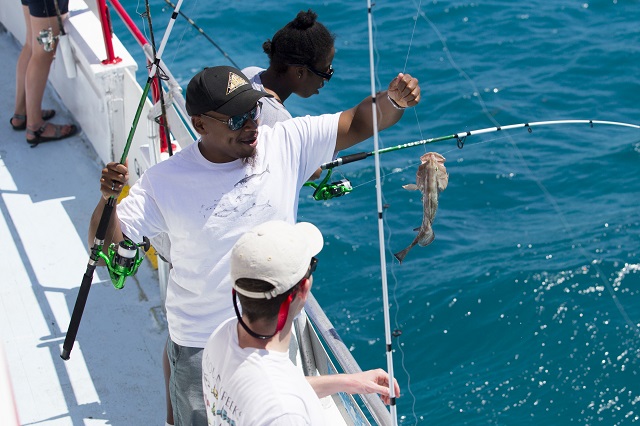
It’s easy to see why it’s one of the most popular recreational sports in the state, and why Florida is a fishing destination for so many. Florida’s marine and coastal ecosystems support a rich diversity of species favored by anglers, from small ballyhoo and mullet to massive tarpon and grouper. In 2019, the Florida Fish and Wildlife Conservation Commission (FWC) issued more than 1.5 million saltwater fishing licenses. Equipment sales and charter businesses pump $9 billion into the state’s economy annually, and employ more than 88,000 Floridians.
But Florida’s fisheries are not an infinite resource, and more fishing means more pressure on fish populations and aquatic ecosystems. For there to be enough fish on the line this weekend and for many more to come, we need to practice sustainable fishing that protects fish populations and maintains healthy ecosystems for them to thrive. Sport fishers love the environment, but as Florida Sea Grant agent Savanna Barry notes, “Humans can love their environment to death through overuse, careless abuse, and lack of awareness.”
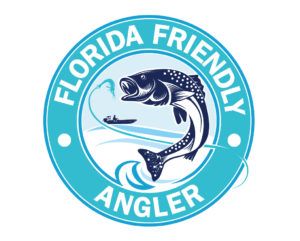
Florida Friendly Anglers
To promote the best practices for sustainable fishing, UF/IFAS Extension and Florida Sea Grant have teamed up with FWC to offer a new Florida Friendly Angler course. This is a FREE online course for both new anglers and experienced fishermen who are looking to up their game. Using videos, narrated slides and interactive quizzes, it teaches skills and practices that help ensure fishing opportunities for the future. You can take the course anytime and at your own pace. In total it takes under 2 hours to complete, and you get a certificate and a slick-looking decal to display with your catch photos and other trophies.
Starting with the basics of environmental ethics, the course discusses ways to prevent overfishing by casting for a wider variety of species. In Florida-friendly angling, the challenge isn’t to land the largest or most fish, but to hook as many different species from as many different spots as possible.
You’ll also learn ways to avoid harming seagrass beds and other environments when you’re out on the water. There’s a video about what to do if you accidentally snag a seabird and tips for the safe disposal of bait and monofilament line.
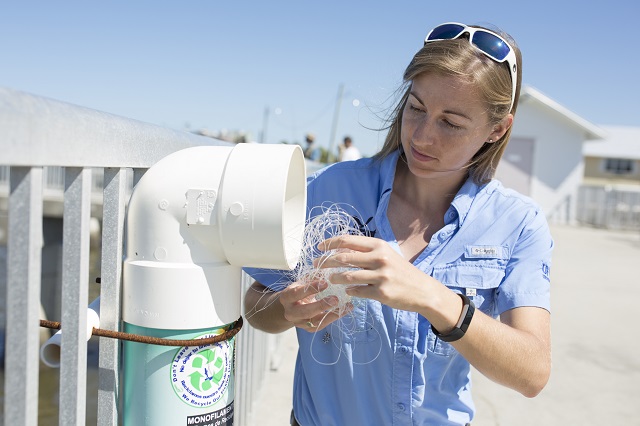
Sustainable fishing also means knowing when and how to let fish go, so they can live to grow and repopulate. Catch-and-release fishing is an important practice, but if it isn’t done correctly, fish can die soon after release. A recent study of snook in Florida waters showed that improperly released fish accounted for 70 percent of fishing-related deaths. The course talks about using the right hook for the right situation, alternatives to barbed hooks, and how to retrieve hooks and handle fish on the line to prevent damage.
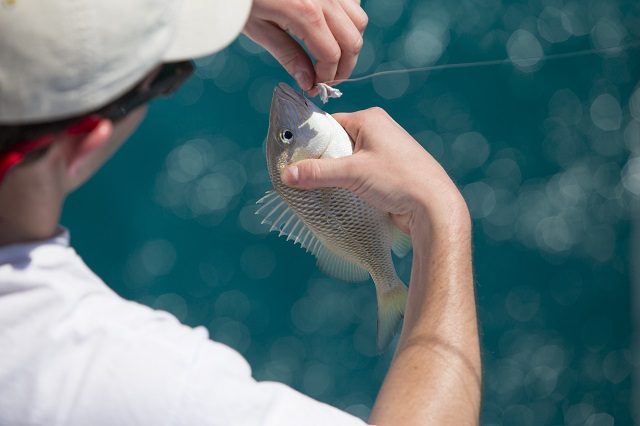
When fishing in waters deeper than 30 feet, fish can sometimes be pulled up to the surface rapidly, causing the air in their swim bladders to expand, a condition called barotrauma. It can damage fish and lead to death after they’re released. The Florida Friendly Angler course will show you how to recognize barotrauma and learn the proper techniques for venting fish or safely releasing them at lower depths using gear called descending devices.
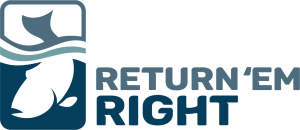
Return ‘Em Right
Preventing barotrauma is the emphasis of another new Florida Sea Grant initiative, Return ‘Em Right. This education program offers deep-sea anglers an opportunity to sharpen their release skills when targeting reef species in the Gulf of Mexico. In return, anglers who complete the program receive free release gear to help them practice what they’ve learned. The course also covers techniques for preventing hook and handling injuries and reducing fight time and air exposure that can harm released fish. Over 6,000 anglers have completed the course since its rollout in May.
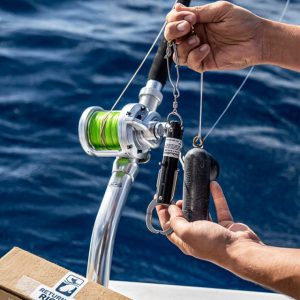
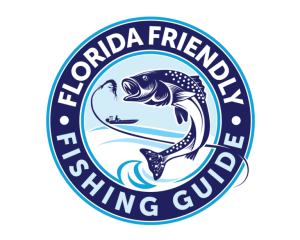
Florida-Friendly Fishing Guides
A good fishing guide can do more than lead you to a great spot; they can also be a teacher. The Florida Friendly Fishing Guide Certification program was created to support local fishing guide businesses while helping their customers learn about sustainable fishing practices. Each lesson plan focuses on a different aspect of ethical angling, and there are modules on seafood safety, fishing regulations, onboard waste management, and how to teach charter customers about the environment. Guides who complete the online course receive certification that they can display on their company website and vessels, a seal of quality that lets their customers know that they practice the highest environmental standards.
There’s also a database of certified Florida Friendly Fishing Guides with over 100 participants in all parts of the state, and the list keeps growing. If you’re looking for an experienced guide who understands the basics of environmental ethics, look to these charter captains—they’re the best in the business.
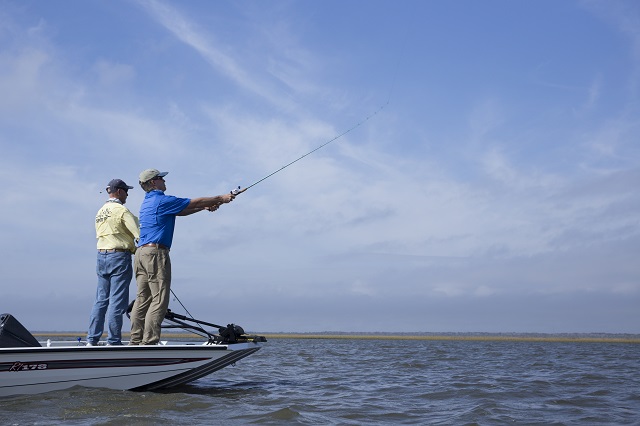
Florida Sea Grant is helping to ensure that our state remains a fishing paradise for generations to come, but it’s only part of our broad mission to conserve our coastal environments and resources while enhancing quality of life and economic opportunities for all Floridians.
During National Ocean month in June, I hope you’ll take time to enjoy our beautiful coasts and learn more about them through Florida Sea Grant.

 3
3
